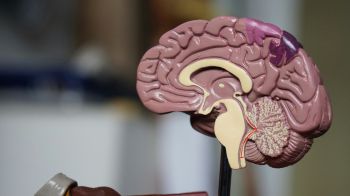Unlocking autistic wellbeing: A new perspective emerges from research
By: Matt Bemment
Last updated: Tuesday, 27 February 2024

Autism, often viewed through a deficit lens, is undergoing a transformative shift as researchers at BSMS delve into understanding what contributes to the wellbeing of autistic individuals. In a new study published in the journal Neurodiversity, Dr Lisa Quadt, autistic Research Fellow in Clinical Neuroscience at BSMS, and Palwasha Najeeb, a fifth-year medical student at BSMS, challenge the traditional deficit-based perspective by adopting a ‘neurodiversity-affirming’ approach.
Rather than focusing solely on the challenges faced by autistic individuals, the researchers aimed to identify factors that positively impact their well-being. Palwasha conducted a scoping review, systematically summarising existing research on the subject, emphasising a need to explore what enhances the lives of autistic individuals.
Palwasha explains the rationale behind their approach, saying: "There is good understanding of autism and its co-occurrence with mental health conditions, but what about what can add or enhance the wellbeing for autistic individuals? We used a Lived Experience Advisory Panel before starting to make sure that questions being asked were appropriate and of value to the community. One point raised from this was looking at positive factors rather negative factors for wellbeing.”
Their review, comprising 89 studies, revealed a notable increase in neurodiversity-affirmative perspectives in studies post-2020, primarily focusing on adults, with only three studies dedicated to autistic children. The most comprehensively understood factors contributing to wellbeing were psychological and social, while biological factors remained under-researched, exposing a critical gap in the literature for future exploration.
Biological factors explored included self-care through nutritional practices and experiences such as menopause. Psychological factors highlighted autonomy, the role of autistic identity, and the impact of receiving an autism diagnosis. Social factors encompassed levels and forms of social support, both in physical and online spaces, emphasising the significance of social connectedness.
The post-pandemic landscape also played a role in understanding positive contributors to autistic wellbeing, with adaptations like remote working providing insights into beneficial environments. Importantly, the study found that these factors, when viewed within a biopsychosocial context, were interconnected and worked synergistically to contribute to autistic wellbeing.
Dr Quadt says: “For instance, an individual receiving an autism diagnosis might experience empowerment, leading to a better understanding of their identity and autonomy. This, in turn, could make social spaces, support networks, and self-care practices more accessible, fostering a heightened sense of social connectedness within the community.”
The research signifies a positive shift toward a neurodiversity-affirmative lens in the field, echoing the sentiments of the wider autistic community and the general population. As understanding grows, this perspective may pave the way for more holistic and inclusive approaches to support the wellbeing of autistic individuals.
Read the study in full here >

